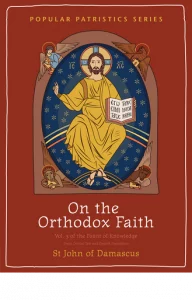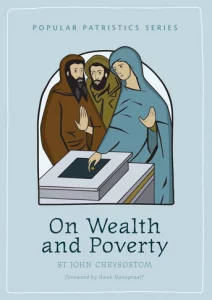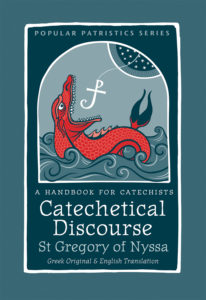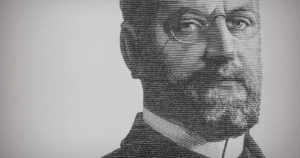
Author’s Corner
Each week on Credo we welcome you to join us in the Author’s Corner where we will meet a set of authors whose recent books deserve your attention and might even help you grow in your knowledge of theology, history, philosophy, and the scriptures. We hope the Author’s Corner can keep you up-to-date on the most important books published today and where you can find them.
On today’s Author’s Corner we present you with a selection of recent works from SVS Press.
O n the Orthodox Faith by John of Damascus
n the Orthodox Faith by John of Damascus
Considered by many to be the final and crowning work of the patristic age, St John of Damascus’ On the Orthodox Faith addresses all the major areas of Christian belief: Trinitarian theology, Christology, soteriology, the sacraments, the veneration of icons, saints, and relics, and much more. This new translation by Norman Russell includes a helpful introduction discussing the origin and reception of the text. This diglot edition, reproducing the critical Greek text on the facing page, is sure to become the standard and classic edition of this central and important patristic work.
Saint John of Damascus was a Syrian monk and priest. Born in the seventh century and raised in Damascus, he died at his monastery, Mar Saba, near Jerusalem. He wrote works expounding the Christian faith and composed hymns which are still used. He is one of the most widely read Fathers and is best known for his strong defense of icons.
O n Wealth and Poverty by John Chrysostom
n Wealth and Poverty by John Chrysostom
The sermons of St John Chrysostom are some of the richest classical commentaries on the Christian life. Knowing well the realities of life in the world, the temptation of rich and poor alike, this great orator—”the golden-mouthed”—addresses the questions of wealth and poverty in the lives of the people of his day. And yet, as the modern reader is confronted with his words, it becomes apparent that he, too, is being addressed; Chrysostom’s words are words proclaiming the truth of the Gospel to all people of all times. The message of the story of the rich man and Lazarus (Luke 16:19-31) is brought home to every person in these six sermons of Chrysostom with clarity, insight into the human dilemma, compassion, and judgment.
C atechetical Discourse by Gregory of Nyssa
atechetical Discourse by Gregory of Nyssa
St Gregory of Nyssa wrote the Catechetical Discourse as a handbook for his catechists, to help them defend and articulate the foundations of the faith, the Trinity, creation and the image of God, the fall and the nature of evil, the saving work of Christ, and the sacraments of baptism and the Eucharist. The Discourse draws upon the previous tradition–especially Origen, St Methodius of Olympus, and, above all, St Athanasius’ On the Incarnation –and influences later fathers like St John of Damascus in his On the Orthodox Faith.
This complex work is also known for its ambiguous relationship to Origen’s universalism, perhaps including the idea that the devil himself will be saved. The translator’s introduction places this question, and a clear understanding of the Catechetical Discourse in general, in the context of St Gregory’s use of rhetoric, his other writings and the broader patristic tradition.

